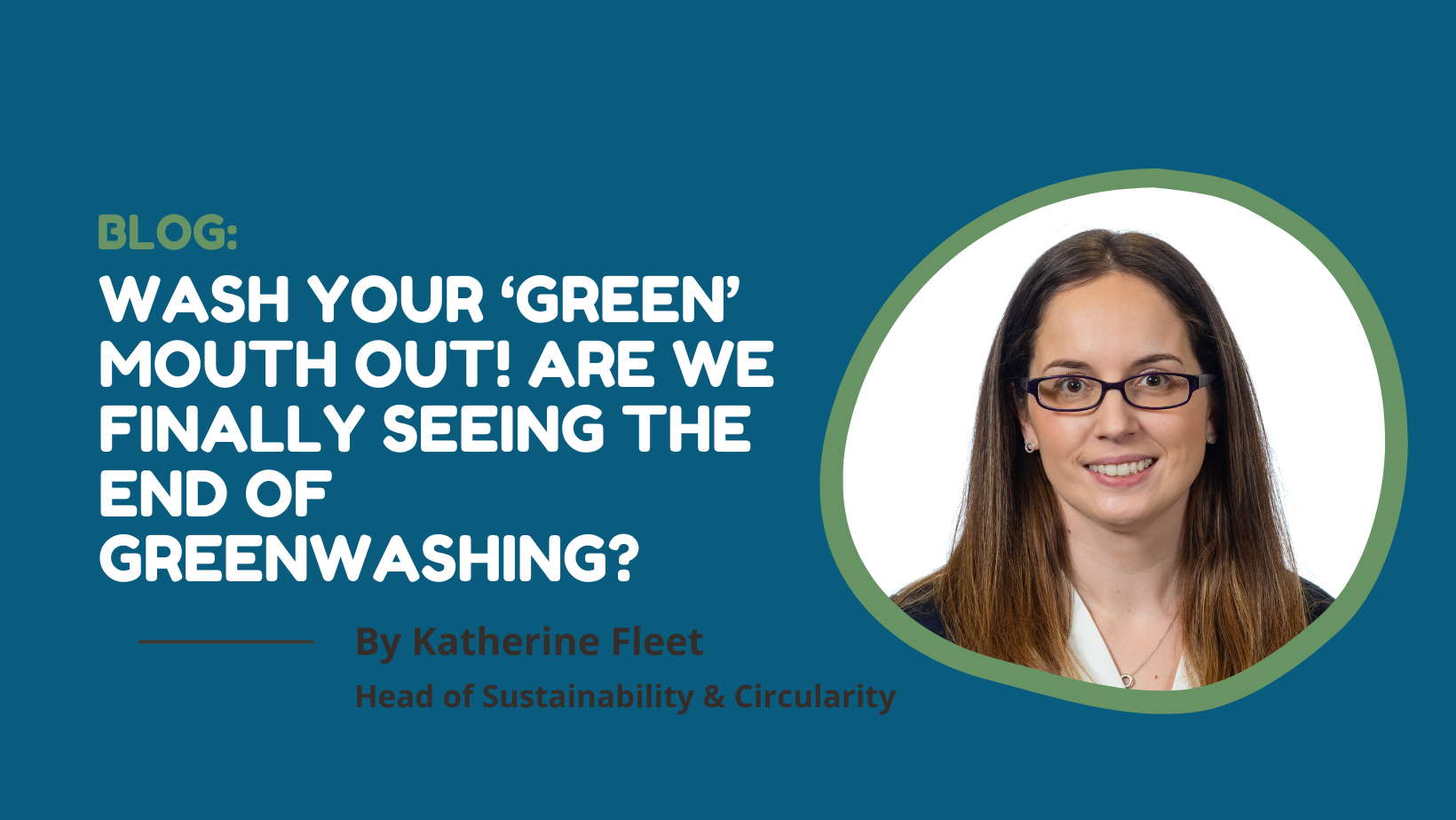Wash Your ‘Green’ Mouth Out! Are We Finally Seeing The End Of Greenwashing?

Throughout my 14 or so years, working in and alongside the packaging industry, extravagant and incorrect green claims around the environmental characteristics of packaging has pretty much been a constant theme. But is common sense finally starting to avail? (Albeit with a bit of regulatory influence!)
Green claims, also known as eco-labelling or environmental marketing claims, refer to statements made by companies about the environmental attributes of their products or practices. These claims can range from assertions of recyclability and biodegradability to claims of reduced carbon footprint or use of renewable materials.
While some companies genuinely strive to reduce their environmental impact, others may engage in “greenwashing” – the deceptive practice of presenting products or practices as more sustainable than they actually are. This can mislead consumers, and other businesses, and undermine efforts to promote genuine environmental efforts.
My personal favourite green claim is the ambiguous term ‘environmentally friendly’ (without any context or evidence attached). Is it just me that cringes every time they read or hear this term?
When we take a closer look at it, what does it mean? Can anything really be considered ‘environmentally friendly’? Personally, I don’t think so, and
especially not when we are applying it to packaging or products. The production of goods still uses various resources to make it – material extraction, energy, transport, end of life processes etc. However environmentally mindful you are about a products impact throughout its lifecycle, its production is still impacting the environment and depleting resources from our planet.
In 2023, Earth Overshoot Day fell on the 2nd August, marking the date when humanity’s demand for ecological resources and services in a year exceeds what the earth can regenerate in that year. Does that really sound like we are environmentally friendly to you? We can certainly be environmentally conscious with our decisions and strive to make the most beneficial choices for the environment, but until the concept of an earth overshoot day is a distant memory and we are really on top of and in control of our resource efficiency, I don’t think we have the right to claim anything as environmentally friendly.
In today’s world, consumers are increasingly conscientious about the environmental impact of the products they purchase. As a result, many industries, including the plastics industry, are under pressure to adopt more sustainable practices and provide products that align with green values.
However, amidst the growing demand for sustainable solutions, there’s often confusion and scepticism surrounding “green” claims made by companies. In the plastics industry, where concerns about pollution and waste are particularly pronounced, navigating these claims becomes even more critical.
In most cases, the use of green claims (and greenwashing) is used as a tool to try and market a product to busy consumers, who are often trying to do the right thing and make more informed buying choices, but don’t have time to analyse the detail to truly understand the claims on what they are buying. That’s not to say that greenwashing doesn’t occur in the B2B sector too, because it does.
So what is being done about this issue?
In 2021, the UK Competition and Markets Authority (CMA) issued guidance and a green claims code. Green Claims Code – Get Your Green Claims Right – Green Claims Code
According to the CMA principles:
• Claims must be truthful and accurate;
• Claims must be clear and unambiguous;
• Claims must not omit or hide important information;
• Comparisons must be fair and meaningful;
• Claims must be substantiated;
• Claims must consider the full life cycle of the product or service.
Since these principles were introduced, we have seen some examples of the CMA, and other authorities such as The Advertising Standards Authority (ASA) , holding organisations accountable for potentially inaccurate green claims. A couple of examples include:
Innocent drinks ads banned over environmental claim – BBC News
ASOS, Boohoo and Asda investigated over fashion ‘green’ claims – GOV.UK (www.gov.uk)
To strengthen this objective further, on the 17th January 2024, the European Parliament announced the ‘Empowering Consumers for the Green Transition’ directive, that will aim to bring clarity and transparency to green claims. Under this directive companies will be obligated to substantiate their claims with verifiable evidence.
While the directive hasn’t yet had the final go ahead, once this has been passed the member states will then have 2 years to transpose this into national law. Hopefully the UK will follow suit.
What can we do?
You might be asking what can I do as an organisation selling goods or as a consumer making purchases. There are a few simple actions we can all take to avoid greenwashing.
1. Look for third-party certification: Independent certifications from reputable organisations can provide assurance that a product meets specific environmental standards. Examples include Recyclass, ISCC etc.
2. Don’t feel afraid to scrutinise green claims and evidence: Don’t always take green claims at face value. Look for evidence to support these claims, such as life cycle assessments (LCAs) or third-party studies. Companies should be transparent about the methodologies used to substantiate their environmental claims.
3. Consider the entire lifecycle: Assessing the environmental impact of a product requires considering its entire lifecycle, from raw material extraction to disposal or recycling. Look for products which address all lifecycle stages and are not just focussed purely on one component.
4. Encourage transparency and accountability in our own organisations and others: Advocate for greater transparency and accountability. Companies should disclose relevant information about their environmental practices and engage in honest dialogue with consumers and stakeholders.
Ultimately, navigating green claims requires diligence, critical thinking, and a commitment to supporting genuine sustainability efforts. Using guidance and holding ourselves and others accountable (sometimes with the help of regulating bodies), we can collectively drive positive change towards a more sustainable future in a clear and transparent way.